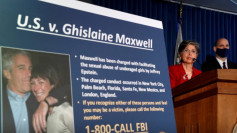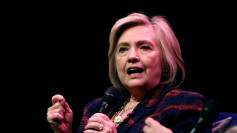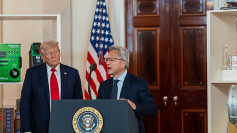The Chicago Department of Public Health (CDPH) has confirmed two cases of measles in the city, marking the first instances of the highly contagious disease since 2019. The announcement comes amid a rising number of measles infections across the United States, with Chicago becoming the 17th state to report cases this year.
The first case was identified in a Chicago resident on Thursday, with the source of infection currently unknown. According to CDPH officials, the individual's infection period ended on March 6, and they are recovering well at home. Although no recent travel outside of Chicago was identified during the case investigation, the infected individual reported interactions with both domestic and international travelers.
Just hours after the initial confirmation, a second measles case was identified in a young child staying at a migrant shelter in the Pilsen neighborhood. The CDPH stated that the child has recovered and is no longer infectious, but a case investigation is underway to determine who the child may have come in contact with while contagious.
In response to the second case, officials are asking residents at the shelter, located at 2241 S. Halstead, to remain in place until their vaccination status against measles can be determined. "Those who have been vaccinated can leave the shelter while those who have not been vaccinated will have to remain," the CDPH said in a statement. "All unvaccinated residents will be screened for symptoms and offered the measles vaccine."
The CDPH is working to establish a process to assess the vaccination status of all residents at the shelter and is delivering masks and other personal protective equipment for shelter residents and staff. The Department of Family and Support Services has also secured additional meals for those staying on site.
Health officials have identified potential exposure sites related to the first case, including the Swedish Hospital's Galter Medical Pavilion and a CTA Bus #92 (Foster) on Feb. 27. Anyone who was at these locations during the specified times is encouraged to contact the CDPH immediately.
Measles symptoms, which can take seven to 21 days to appear after exposure, include a rash, high fever, cough, runny nose, and red, watery eyes. Those who develop symptoms should contact a health care provider before visiting a medical office or emergency department.
CDPH Commissioner Dr. Olusimbo Ige emphasized the importance of vaccination in preventing the spread of measles. "The key to preventing measles is vaccination. If you are not vaccinated, we strongly encourage you to get the vaccine," she said. "If you are unsure whether you've been vaccinated, ask your healthcare provider to find out if you need an MMR. If your child is 1 year old or older, and has never received the MMR vaccine, contact your child's pediatrician to discuss how your child can get caught up with their vaccines."
The two confirmed cases in Chicago are part of a broader trend of rising measles infections across the United States. As of Feb. 29, the Centers for Disease Control and Prevention (CDC) reported 41 measles cases in 16 states, with Illinois now becoming the 17th state to see measles cases this year.
Although measles was declared eliminated in the U.S. in 2000, sporadic outbreaks have occurred in recent years, primarily in pockets of unvaccinated or under-vaccinated communities. The MMR vaccine is 97% effective at stopping the transmission of measles and has been instrumental in making measles cases a rarity in the United States.
As Chicago health officials work to contain the potential spread of measles and investigate possible exposure sites, they continue to urge residents to ensure they and their children are up to date on their MMR vaccinations. By maintaining high vaccination rates, the city hopes to prevent further cases and protect its most vulnerable populations from this highly contagious disease.






